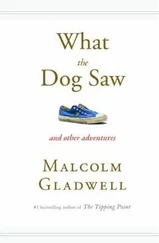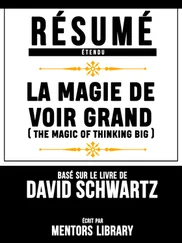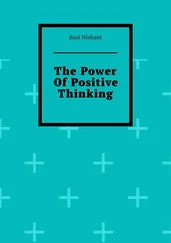Malcolm Gladwell - Blink - The Power of Thinking Without Thinking
Здесь есть возможность читать онлайн «Malcolm Gladwell - Blink - The Power of Thinking Without Thinking» весь текст электронной книги совершенно бесплатно (целиком полную версию без сокращений). В некоторых случаях можно слушать аудио, скачать через торрент в формате fb2 и присутствует краткое содержание. Жанр: Культурология, Психология, на английском языке. Описание произведения, (предисловие) а так же отзывы посетителей доступны на портале библиотеки ЛибКат.
- Название:Blink: The Power of Thinking Without Thinking
- Автор:
- Жанр:
- Год:неизвестен
- ISBN:нет данных
- Рейтинг книги:3 / 5. Голосов: 1
-
Избранное:Добавить в избранное
- Отзывы:
-
Ваша оценка:
- 60
- 1
- 2
- 3
- 4
- 5
Blink: The Power of Thinking Without Thinking: краткое содержание, описание и аннотация
Предлагаем к чтению аннотацию, описание, краткое содержание или предисловие (зависит от того, что написал сам автор книги «Blink: The Power of Thinking Without Thinking»). Если вы не нашли необходимую информацию о книге — напишите в комментариях, мы постараемся отыскать её.
Blink: The Power of Thinking Without Thinking — читать онлайн бесплатно полную книгу (весь текст) целиком
Ниже представлен текст книги, разбитый по страницам. Система сохранения места последней прочитанной страницы, позволяет с удобством читать онлайн бесплатно книгу «Blink: The Power of Thinking Without Thinking», без необходимости каждый раз заново искать на чём Вы остановились. Поставьте закладку, и сможете в любой момент перейти на страницу, на которой закончили чтение.
Интервал:
Закладка:
But Bargh and his colleagues were wrong. The people primed to be rude eventually interrupted—on average after about five minutes. But of the people primed to be polite, the overwhelming majority—82 percent— never interrupted at all . If the experiment hadn’t ended after ten minutes, who knows how long they would have stood in the hallway, a polite and patient smile on their faces?
“The experiment was right down the hall from my office,” Bargh remembers. “I had to listen to the same conversation over and over again. Every hour, whenever there was a new subject. It was boring, boring . The people would come down the hallway, and they would see the confederate whom the experimenter was talking to through the doorway. And the confederate would be going on and on about how she didn’t understand what she was supposed to do. She kept asking and asking, for ten minutes, ‘Where do I mark this? I don’t get it.’” Bargh winced at the memory and the strangeness of it all. “For a whole semester this was going on. And the people who had done the polite test just stood there .”
Priming is not, it should be said, like brainwashing. I can’t make you reveal deeply personal details about your childhood by priming you with words like “nap” and “bottle” and “teddy bear.” Nor can I program you to rob a bank for me. On the other hand, the effects of priming aren’t trivial. Two Dutch researchers did a study in which they had groups of students answer forty-two fairly demanding questions from the board game Trivial Pursuit. Half were asked to take five minutes beforehand to think about what it would mean to be a professor and write down everything that came to mind. Those students got 55.6 percent of the questions right. The other half of the students were asked to first sit and think about soccer hooligans. They ended up getting 42.6 percent of the Trivial Pursuit questions right. The “professor” group didn’t know more than the “soccer hooligan” group. They weren’t smarter or more focused or more serious. They were simply in a “smart” frame of mind, and, clearly, associating themselves with the idea of something smart, like a professor, made it a lot easier—in that stressful instant after a trivia question was asked—to blurt out the right answer. The difference between 55.6 and 42.6 percent, it should be pointed out, is enormous. That can be the difference between passing and failing.
The psychologists Claude Steele and Joshua Aronson created an even more extreme version of this test, using black college students and twenty questions taken from the Graduate Record Examination, the standardized test used for entry into graduate school. When the students were asked to identify their race on a pretest questionnaire, that simple act was sufficient to prime them with all the negative stereotypes associated with African Americans and academic achievement—and the number of items they got right was cut in half . As a society, we place enormous faith in tests because we think that they are a reliable indicator of the test taker’s ability and knowledge. But are they really? If a white student from a prestigious private high school gets a higher SAT score than a black student from an inner-city school, is it because she’s truly a better student, or is it because to be white and to attend a prestigious high school is to be constantly primed with the idea of “smart”?
Even more impressive, however, is how mysterious these priming effects are. When you took that sentence-completion test, you didn’t know that you were being primed to think “old.” Why would you? The clues were pretty subtle. What is striking, though, is that even after people walked slowly out of the room and down the hall, they still weren’t aware of how their behavior had been affected. Bargh once had people play board games in which the only way the participants could win was if they learned how to cooperate with one another. So he primed the players with thoughts of cooperativeness, and sure enough, they were far more cooperative, and the game went far more smoothly. “Afterward,” Bargh says, “we ask them questions like How strongly did you cooperate? How much did you want to cooperate? And then we correlate that with their actual behavior—and the correlation is zero. This is a game that goes on for fifteen minutes, and at the end, people don’t know what they have done. They just don’t know it. Their explanations are just random, noise. That surprised me. I thought that people could at least have consulted their memories. But they couldn’t.”
Aronson and Steele found the same thing with the black students who did so poorly after they were reminded of their race. “I talked to the black students afterward, and I asked them, ‘Did anything lower your performance?’” Aronson said. “I would ask, ‘Did it bug you that I asked you to indicate your race?’ Because it clearly had a huge effect on their performance. And they would always say no and something like ‘You know, I just don’t think I’m smart enough to be here.’”
The results from these experiments are, obviously, quite disturbing. They suggest that what we think of as free will is largely an illusion: much of the time, we are simply operating on automatic pilot, and the way we think and act—and how well we think and act on the spur of the moment—are a lot more susceptible to outside influences than we realize. But there is also, I think, a significant advantage to how secretly the unconscious does its work. In the example of the sentence-completion task I gave you with all the words about old age, how long did it take you to make sentences out of those words? My guess is that it took you no more than a few seconds per sentence. That’s fast, and you were able to perform that experiment quickly because you were able to concentrate on the task and block out distractions. If you had been on the lookout for possible patterns in the lists of words, there is no way you would have completed the task that quickly. You would have been distracted. Yes, the references to old people changed the speed at which you walked out of the room, but was that bad? Your unconscious was simply telling your body: I’ve picked up some clues that we’re in an environment that is really concerned about old age—and let’s behave accordingly. Your unconscious, in this sense, was acting as a kind of mental valet. It was taking care of all the minor mental details in your life. It was keeping tabs on everything going on around you and making sure you were acting appropriately, while leaving you free to concentrate on the main problem at hand.
The team that created the Iowa gambling experiments was headed by the neurologist Antonio Damasio, and Damasio’s group has done some fascinating research on just what happens when too much of our thinking takes place outside the locked door. Damasio studied patients with damage to a small but critical part of the brain called the ventromedial prefrontal cortex, which lies behind the nose. The ventromedial area plays a critical role in decision making. It works out contingencies and relationships and sorts through the mountain of information we get from the outside world, prioritizing it and putting flags on things that demand our immediate attention. People with damage to their ventromedial area are perfectly rational. They can be highly intelligent and functional, but they lack judgment. More precisely, they don’t have that mental valet in their unconscious that frees them up to concentrate on what really matters. In his book Descartes’ Error, Damasio describes trying to set up an appointment with a patient with this kind of brain damage:
I suggested two alternative dates, both in the coming month and just a few days apart from each other. The patient pulled out his appointment book and began consulting the calendar. The behavior that ensued, which was witnessed by several investigators, was remarkable. For the better part of a half hour, the patient enumerated reasons for and against each of the two dates: previous engagements, proximity to other engagements, possible meteorological conditions, virtually anything that one could think about concerning a simple date. [He was] walking us through a tiresome cost-benefit analysis, an endless outlining and fruitless comparison of options and possible consequences. It took enormous discipline to listen to all of this without pounding on the table and telling him to stop.
Читать дальшеИнтервал:
Закладка:
Похожие книги на «Blink: The Power of Thinking Without Thinking»
Представляем Вашему вниманию похожие книги на «Blink: The Power of Thinking Without Thinking» списком для выбора. Мы отобрали схожую по названию и смыслу литературу в надежде предоставить читателям больше вариантов отыскать новые, интересные, ещё непрочитанные произведения.
Обсуждение, отзывы о книге «Blink: The Power of Thinking Without Thinking» и просто собственные мнения читателей. Оставьте ваши комментарии, напишите, что Вы думаете о произведении, его смысле или главных героях. Укажите что конкретно понравилось, а что нет, и почему Вы так считаете.












